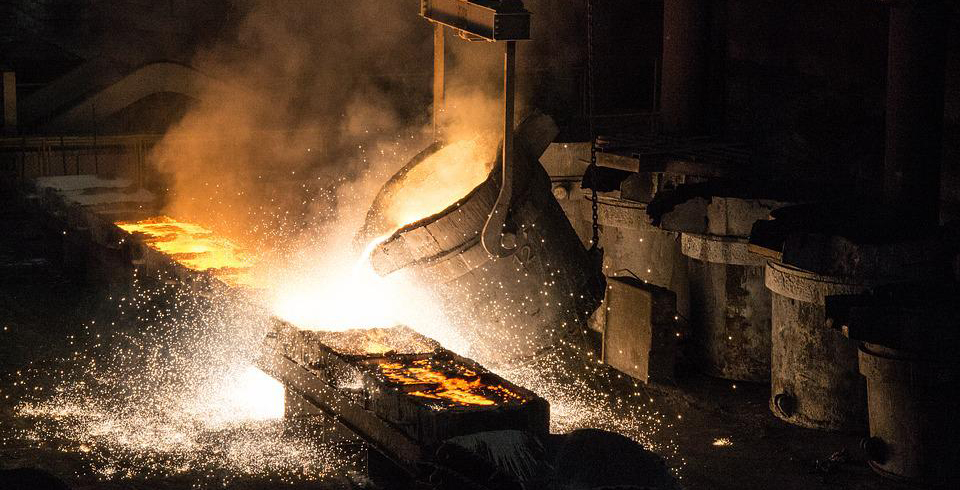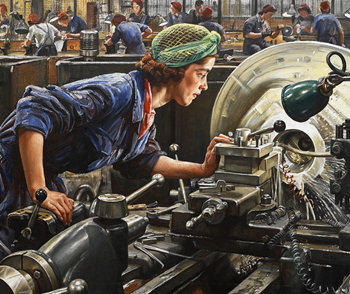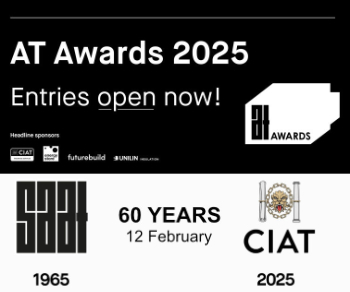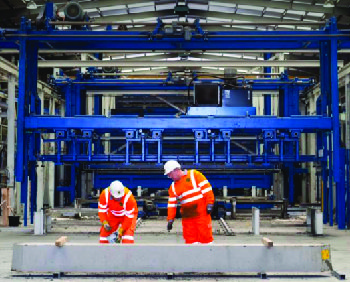Metallurgy
Contents |
[edit] Introduction
Metallurgy is the science, technology and sometimes the art of metal extraction, purification, processing and modification. In more general terms it can also refer to an understanding of the chemical, physical, or atomic properties, structures and principles of metal.
The term is likely to have derived from the modern Latin or Greek words metallurgia or metallourgos, which refer to a metal worker, sometimes known today as a metallurgist. As metallurgy includes the extraction of metals from mineral ores it is closely related to the science of geology in understanding rock formations and the location of appropriate ores which more specifically might be referred to as metal mineral exploration or prospecting.
Historically, metallurgy would have started with native metals, typically rare metals that appear in nature in their pure form such as gold, platinum and copper. Later this developed through an understanding of the extraction of metal from ores, probably starting with copper. The smelting of this and then its mixing with arsenic or tin created bronze during the bronze age.
In many respects bronze was then replaced by the discovery of iron (by early Egyptians) and started what is known as the iron age. Iron continued to be important up to and into the industrial revolution. The possibilities of metal use then expanded with the introduction of steel, which is still one of the core materials used in construction.
Today metallurgy might be described under three different headings or branches:
[edit] Extractive metallurgy
Extractive metallurgy is concerned with the processing of naturally occurring raw materials to extract or convert them into useful metals and alloys. The sub areas of this are referred to as :
[edit] Physical metallurgy
Physical metallurgy is concerned with the identification, control and adjustment of the properties of metals and their alloys. It involves understanding metallic chemical, physical, or atomic structures, properties, and principles.
[edit] Mechanical metallurgy
Mechanical metallurgy is concerned with the working of metal into objects, through rolling, forging, spinning, extrusion, stamping, machining, welding, casting and so on, as well the response of metals to different forces, their tensile, hardness, fatigue, life-span and other properties.
[edit] Related articles on Designing Buildings
Featured articles and news
C20 Society; Buildings at Risk List 2025
10 more buildings published with updates on the past decade of buildings featured.
Boiler Upgrade Scheme and certifications consultation
Summary of government consultation, closing 11 June 2025.
Deputy editor of AT, Tim Fraser, discusses the newly formed society with its current chair, Chris Halligan MCIAT.
Barratt Lo-E passivhaus standard homes planned enmasse
With an initial 728 Lo-E homes across two sites and many more planned for the future.
Government urged to uphold Warm Homes commitment
ECA and industry bodies write to Government concerning its 13.2 billion Warm Homes manifesto commitment.
From project managers to rising stars, sustainability pioneers and more.
Places of Worship in Britain and Ireland, 1929-1990. Book review.
The emancipation of women in art.
Call for independent National Grenfell oversight mechanism
MHCLG share findings of Building Safety Inquiry in letter to Secretary of State and Minister for Building Safety.
The Architectural Technology Awards
AT Awards now open for this the sixth decade of CIAT.
50th Golden anniversary ECA Edmundson awards
Deadline for submissions Friday 30 May 2025.
The benefits of precast, off-site foundation systems
Top ten benefits of this notable innovation.
Encouraging individuals to take action saving water at home, work, and in their communities.
Takes a community to support mental health and wellbeing
The why of becoming a Mental Health Instructor explained.
Mental health awareness week 13-18 May
The theme is communities, they can provide a sense of belonging, safety, support in hard times, and a sense purpose.
Mental health support on the rise but workers still struggling
CIOB Understanding Mental Health in the Built Environment 2025 shows.
Design and construction material libraries
Material, sample, product or detail libraries a key component of any architectural design practice.
























